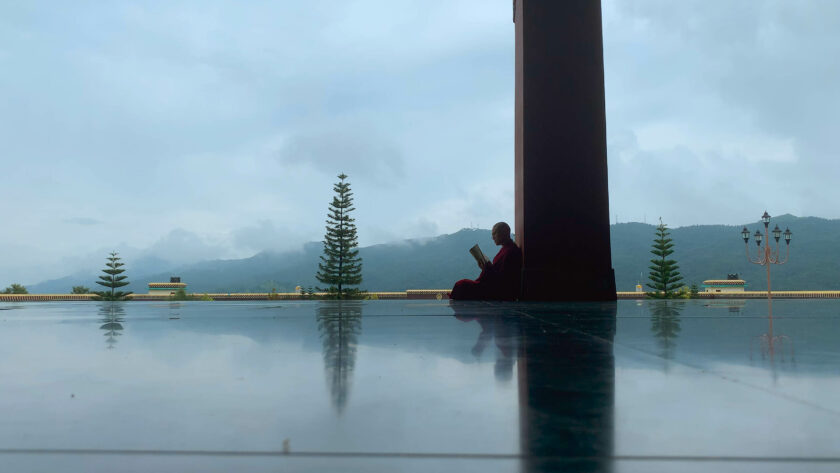Editor-in-chief Tomi Haffety considers a collaborative documentary project about a day in 2020 around the world.
A touching portrayal of humanity’s most intricate relationships, Life in a Day is a collaboration between 324,000 people across 192 countries all documenting their experience of the 25th July 2020. Originally created in 2010, and following the same style of personal stories told through thousands of hand-held lenses, Kevin Macdonald follows similar themes of birth, death, and all the love and hardship experienced in-between.
Setting the scene for a somewhat overly melodramatic exploration into prosaic human life, the opening shot of a hurricane on a tropical island evokes the power of nature and its ever-increasing dominance in our lives. Collating clips of childbirth to start the feature at the start of life itself, alongside these scenes of nature, draws parallels to the power of new life and new beginnings. The montage of new mothers is enough to stir deep-rooted emotion, and as the wide shots of vast natural landscapes are displaced by urban environments, it becomes obvious that Macdonald is aiming to make the mundane and often boring aspects of life into something interesting and worth appreciating. As each person introduces their mornings and their routines, a layered diversity of stories plants itself at the heart of this film. The simple acts of showering and eating breakfast are suddenly romanticised, and the simple importance of our everyday habits are heightened as the camera moves across continents, languages, and customs.

Noticeable throughout the ninety-minute feature are the different responses and stages of the pandemic across the world. By July, many countries were still in a kind of lockdown, while some had come out of the other side and were already experiencing music festivals, concerts, and a return to ‘normal’ life. Although the country of filming is never explicitly detailed, it is obvious that there are vast differences between the responses to the crisis, and there is enough screen time devoted to both the challenging realities of COVID-19, and the resilience of many across the world, that a message of global solidarity becomes the film’s main theme. Watching Life in a Day gives one assurance that, although the domineering forces of political and economic struggles are set to divide us across nations, nobody is alone.
The clips share intimate and difficult parts of life, such as the experience of infertility treatments and familial breakdown, offering raw insight into the very normal struggles of very normal people on all sides of the political and spiritual spectrums. However, the film is split into distinct acts exploring different stages of life. Beginning with birth, before moving onto falling in love, as well as falling out of it, encapsulates the range of events that occur in all our lives, and Macdonald has done well to piece each clip into a smooth-flowing feature that plays out much like a compilation of your own home videos. It is a strange thing to watch other people laughing, crying, and celebrating all the same things that you do, but in a wildly different manner, and I was moved by the dichotomy of knowing that everyone shares similar experiences while also having completely unique and unimaginable lives.
Indicative of the strangeness of 2020, there is a deep exploration into the impacts of isolation and, throughout the second half of the film, different stories show the more destructive side of lockdown on people living alone or separated from their families. Although the comedic side of social distancing, such as Zoom graduations and online celebrations, are heartwarmingly riddled with good humour (and the film does well to include such an array of different cultural celebrations), the stark reality is best exemplified by scenes of emptiness in vast cities with not a soul in sight. Healthcare workers and those working on the vaccine also feature in clips where they outline the essential behind-the-scenes work which allows us to move forward within the crisis.

Life in a Day is a must-watch if you want to realise the importance of the small things in the everyday. Sharing food and conversations are recurring scenes, many of which are ultimately positive in the laughter they bring. Notable characters, like a witty traffic cop walking around Hollywood using a GoPro to film his day, are indicative of the fact that Macdonald has made a film that encourages you to take a step back and realise the profound simplicities of life – something that 2020 made us all do already.
Among many of the major events throughout the year, the Black Lives Matter protests and tributes to George Floyd are examined with a curious sensitivity. Compiling footage from protests and movements across the world brought home the complete injustices of systemic racism within society, despite Life in a Day primarily exploring America. Transitioning from societal to environmental injustices, natural disasters in their most malevolent form are shot with expert skill, and the consequences of mass flooding and hurricanes are painful reminders of the climate crisis and the complexities that we face in solving it. Wide shots of domineering landscapes can easily make you feel small and irrelevant but, in the end, the recurring optimism shines through as the film develops.
All 324,000 filmmakers have succeeded in creating a powerful time capsule and loving look into life as it was on one day in 2020, a year of so much confusion and hardship but also of true solidarity and warmth. The parallels in the contrast between the seismic events that occurred as well as the minutiae of everyday life were not lost on me, and it is exactly this stark distinction that made me more appreciative of the romanticisation of mundanity. Using some recurring characters gives the film an element of structure, but the beauty of Life in a Day lies in the feeling that the sentimentality felt throughout all of the compiled stories is unintentional. Ending with touching scenes of elderly people appreciating longevity and sharing their key ‘life lessons’ brings a cyclical end to a colossal project.




